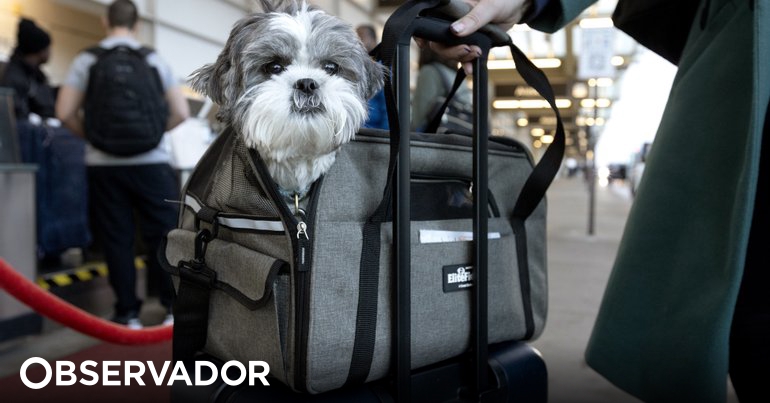
The domestication of dogs changed the color of their eyes, which with evolution gained a more friendly and less threatening brown tone for humans, far from the lighter eyes of their wolf cousin.
“A The iris color of dogs is darker than that of wolves e This darker color positively affects humans’ perception of dogs“, indicates a study carried out by scientists from the department of animal sciences at the Japanese university Teikyo.
The work, published this Wednesday in the scientific journal Royal Society Open Science, considers that humans have naturally selected dogs with dark eyes, with selective pressure favoring animals whose eyes were “seen by people as friendly and youthful“.
The domestication of the dog, from the gray wolf, occurred gradually during a period between 50,000 and 15,000 years ago.
Today, most canines associated with wolves have eyes with a light iris, tending towards yellow, with the dark pupil standing out in the center.
In contrast, the eyes of dogs from about three dozen breeds selected for the study have large, dark, brownish irises, which makes it difficult to distinguish the pupil.
This difference will be of great importance in the exchange of looks between the human and his “faithful companion”. This exchange, which the dog knows how to use to attract the owner’s attention, leads to the production of oxytocin, so similar to what happens in the exchange of glances between mother and child.
Teikyo researchers relied on studies on primates, in particular humans, in which a dilated pupil is associated, for example, with more positive emotions than a constricted one.
A large iris is also unconsciously associated with that of a juvenile being and therefore more vulnerable and harmless.
According to the study, a dog with a darker eye color is seen “as fragile and must be protected”.
Scientists admit, however, that there are limits to their study, such as “familiarity”, that is, the possibility that humans prefer dark-eyed dogs simply because they are the most numerous or the fact that the tests carried out included a limited number of species. of dogs in relation to all existing ones.
“It is the first study on the difference in eye color between dogs and wolves,” its lead author, Akitsugu Konno, told Agence France-Press.
Considering that “other factors besides human preference may contribute to many dogs having darker eyes”, the researcher added that he hopes that other studies on the issue can “confirm the universality of the phenomenon”.
Source: https://observador.pt/2023/12/20/domesticacao-dos-caes-mudou-a-cor-dos-seus-olhos/

